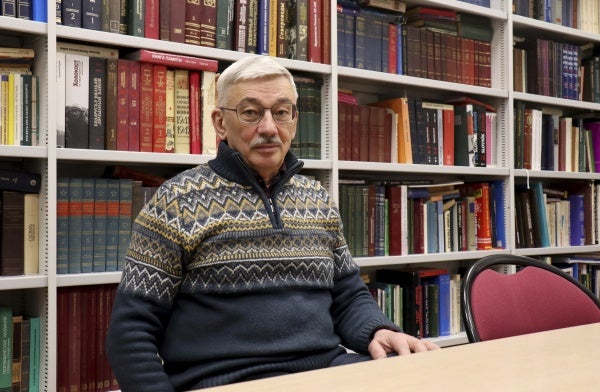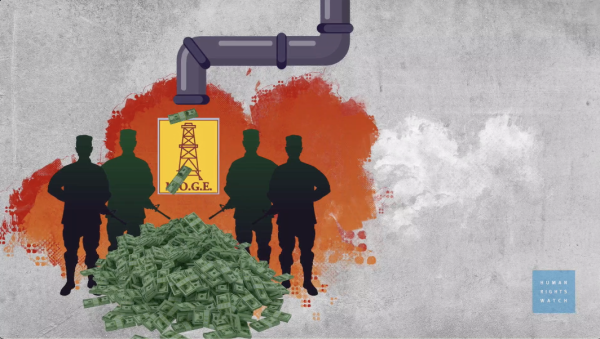Hier die deutsche Ausgabe lesen / Lea la versión en español
Russia heads toward presidential elections in March, and no one is doubting the outcome. Authoritarian governments don’t hold elections to give people a free and fair choice. They do so as a choreographed show for the nation and the world to demonstrate the leader is loved.
It may be a wonder such authorities even bother to go through all the fakery, but the shared make-believe is important. The public pretending reinforces the political power.
In Russia, as elsewhere, these election shows are tightly managed. They don’t want to leave anything to chance, let alone to actual public input. Essential preparations include censoring the media for years, as well as jailing some opposition leaders and barring other possible candidates from running.
It also means silencing critics, and Russian authorities have conducted a vicious drive to eliminate dissent. Case in point: the Kremlin now seems hell bent on putting Oleg Orlov in prison before the March vote.
Regular readers will well remember Orlov, whose case we highlighted twice last year. He’s one of the most prominent and outspoken human rights defenders in Russia. Orlov is co-chair of Memorial, a leading rights group in the country that was co-winner of the Nobel Peace Prize in 2022.
The Russian government shut Memorial down in the same year, yet the group’s core activists continue their human rights work, some from abroad, and some, like Orlov, from inside the country.
The case against Orlov stems from his anti-war pickets and an article he wrote in which he argued Russia had descended into fascism. He is charged with “repeated discreditation” of Russia’s armed forces. As far as the authorities are concerned, the military’s war crimes in its atrocity-ridden invasion and occupation of Ukraine are not the problem. Talking about them is.
There are two grim new developments in Orlov’s case.
First, his retrial has been moved up. The prosecution gave his legal team three days to examine the seven-volume case file. The court denied his lawyers’ request for more time.
Second, Russia’s Justice Ministry has now declared Orlov a “foreign agent,” because of his opposition to the Kremlin’s war. This official designation is toxic. The law demands journalists and other commentators note this “foreign agent” status in any quote by Orlov and any reports about his trial.
Coming right before the opening of Orlov’s trial, as Memorial has noted, this “foreign agent” designation “cannot but influence the judge.”
The 70-year-old Orlov is facing up to three years in prison. It seems the Kremlin is keen to get him behind bars as soon as possible – and before its March “elections” show.









